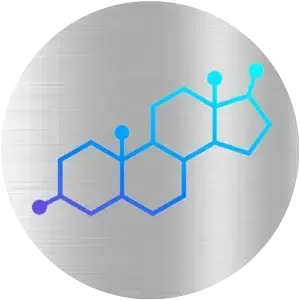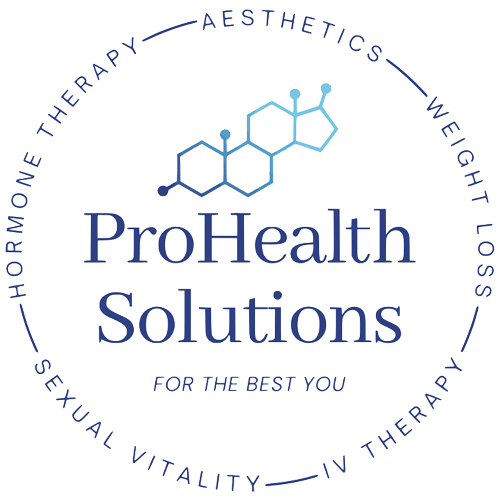Chemical Peels
Chemical peels are one of the most successful and flexible cosmetic procedures available, with several advantages ranging from fine line and wrinkle reduction to improved skin tone and texture.
At ProHealth Solutions, our skilled staff is devoted to assisting you in achieving vibrant, beautiful skin. Our chemical peels are tailored to your unique skin type and issues, providing the best results. Whether you want to decrease fine wrinkles, level out your skin tone, or cure obstinate acne, our personalized treatments will leave your skin shining and revitalized
What are Chemical Peels?
Chemical peels are a common cosmetic treatment that improves the skin’s look and texture. Chemical peels scrape the skin’s outer layers using a chemical solution, revealing fresher, more youthful skin beneath. This technique may address a wide range of skin issues, making it a flexible choice for many people.
How Chemical Peels Work
Chemical peels use acids to exfoliate the skin by lowering its pH. The skin’s pH is around 5.5, but during a chemical peel, it drops to 3.8. That’s low enough to break the bonds between dead skin cells and the healthy skin underneath – the glue that holds them together.
As a result, dead skin cells are shed, revealing the new, healthy skin beneath. This exfoliating procedure promotes the formation of new skin cells, resulting in a brighter, smoother complexion.
Chemical peels generally fall into two main categories based on the types of acids used:
- Alpha-Hydroxy Acids (AHAs): These are water-soluble acids obtained from natural sources such as fruits and milk. AHAs, such as glycolic acid and lactic acid, are recognized for their mild exfoliating characteristics, making them suitable for superficial peels that address minor skin flaws like fine wrinkles and uneven tone.
- Beta-Hydroxy Acids (BHAs): These are oil-soluble acids, with salicylic acid being the most frequent kind. BHAs are great at penetrating and exfoliating pores for acne and oily skin. They remove dead skin cells and excess oil, and prevent pores from clogging and breaking out.
What Can They Treat?
Chemical peels are a versatile and effective treatment option for a wide range of skin concerns. They can address several common skin issues, helping you achieve a smoother, more youthful complexion.
Here are some of the primary conditions that chemical peels can treat:
- Fine Lines and Wrinkles: Chemical peels reduce the appearance of fine lines and wrinkles by promoting collagen production and skin renewal.
- Sun Damage: They help improve skin tone and texture by removing the damaged outer layers caused by excessive sun exposure.
- Acne and Acne Scars: Chemical peels treat acne by unclogging pores and reducing inflammation, and they improve acne scars by stimulating skin cell turnover.
- Hyperpigmentation: They lighten dark spots and even out skin tone by exfoliating the top layers of skin.
- Uneven Skin Tone and Texture: Chemical peels enhance skin texture and create a more uniform complexion by removing rough, dry, or flaky patches.
- Enlarged Pores: They reduce the appearance of enlarged pores through deep cleansing and exfoliation.
- Scarring: Chemical peels smooth and diminish the appearance of scars by encouraging new skin growth and collagen production.
- Dull Skin: They rejuvenate dull, tired-looking skin by removing dead skin cells and promoting a healthy, vibrant complexion.
Who Is It For?
Chemical peels are for many, but there are some conditions that apply. If you fit into the following group, you should consult with our dermatologist to see if it’s right for you:
- Active skin infections
- Severe sunburn
- Chronic skin conditions (eczema, psoriasis, dermatitis)
- Pregnant or breastfeeding
- Keloids or poor wound healing
- Using certain medications (isotretinoin/Accutane within the past six months)
- Darker skin tones (for certain peels)
- Unrealistic expectations
- Compromised immune system
What Can You Expect After A Chemical Peel?
Your skin will be red and sensitive, like a moderate sunburn, and you may feel tingling or tightness in the treated area. These effects usually fade within hours or a day. In the first few days after the treatment, your skin will peel and flake as it sheds the old, damaged layers and you’ll feel dry and tight.
Hydrate your skin during the healing process to help it recover and feel less painful. Use broad-spectrum sunscreen and avoid direct sun because your skin will be more sensitive to UV. In the long run, when new skin forms, you’ll have smoother texture and tone. There’ll be less fine lines, wrinkles, dark spots, and skin issues.
Why Choose ProHealth Solutions for Your Chemical Peel?
At ProHealth Solutions, we take pleasure in providing superior skincare treatments that are personalized to your specific needs. To assure your safety and happiness, our skilled specialists exclusively use high-quality and modern processes. With our complete assessment and individualized treatment, you can be confident that your skin is in capable hands.
Ready to Transform Your Skin?
Don’t wait to achieve the radiant, youthful skin you deserve! Book your consultation with ProHealth Solutions today and discover the incredible benefits of our customized chemical peel treatments. Our expert team is here to guide you every step of the way, ensuring you get the best results tailored to your unique skin needs.

